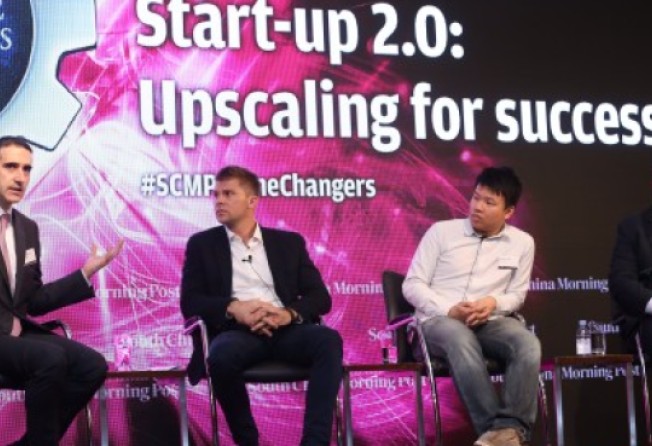
Want to know a start-up’s chances of success? Hong Kong’s Oddup delves beneath marketing hype to provide investors with rating system

A Hong Kong company has developed a start-up rating system to separate fact from marketing hype and provide investors with data suggesting whether young firms are likely to succeed, become unicorns or go belly up.
Founded by Australian James Giancotti, Oddup assesses companies using a matrix that rates the product, team, competitors and growth potential to offer a score from zero to 100, with 100 being the least risky. Individual categories are scored out of 10.
“For investors who are looking to get into start-ups, smart ones don’t believe the hype, so what we’re doing at Oddup is to put the hype in perspective and the reality that nine out of ten [start-ups] fail,” said Giancotti.
Each start-up is given a buy, sell or hold rating as well as a expected future valuations to guide investors.
“We think the world needs to know about this asset class ... and rather than just focus on countries or cities, it needs to be something that’s aggregated across the world in the same manner,” he said.
Investors, such as venture capital seed funds, and cities also come under Oddup’s scrutiny with data given on how many investments have been made, the number of exits and the average valuation of a city’s start-ups.
The former Goldman Sachs researcher said start-ups welcome the rating system’s critical eye and have told him they can learn from the weaknesses unearthed by Oddup’s team of researchers.
Oddup is sold to users on a subscription basis of US$99 a month or US$1,000 a year and currently has 1,000 paying clients with J.P. Morgan and Goldman Sachs among its corporate clients.
In recent weeks the company announced it had raised US$1 million in seed investment led by Kima Ventures, Click Ventures and Bigcolors.
Although based in Hong Kong, the research platform’s coverage extends to cities in Taiwan, China and Singapore.
Of the cities covered, Beijing is seen as the most promising, with the average valuation of companies in the Chinese capital assessed at US$23.9 million, compared to just HK$13.9 million (US$1.79 million) for those in Hong Kong.
Giancotti said established businesses in Hong Kong should step forward to help nurture start-ups and that more tax incentives should be offered to investors.
Giancotti predicts food delivery apps will emerge as the start-up darlings of 2016 for Hong Kong, following on from the flurry of box-storage firms this year.
“There will be one or two winners. The rest will all fail,” he said.